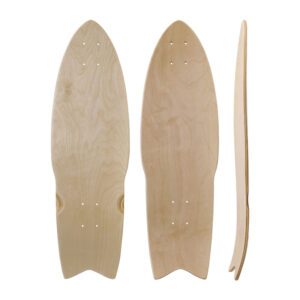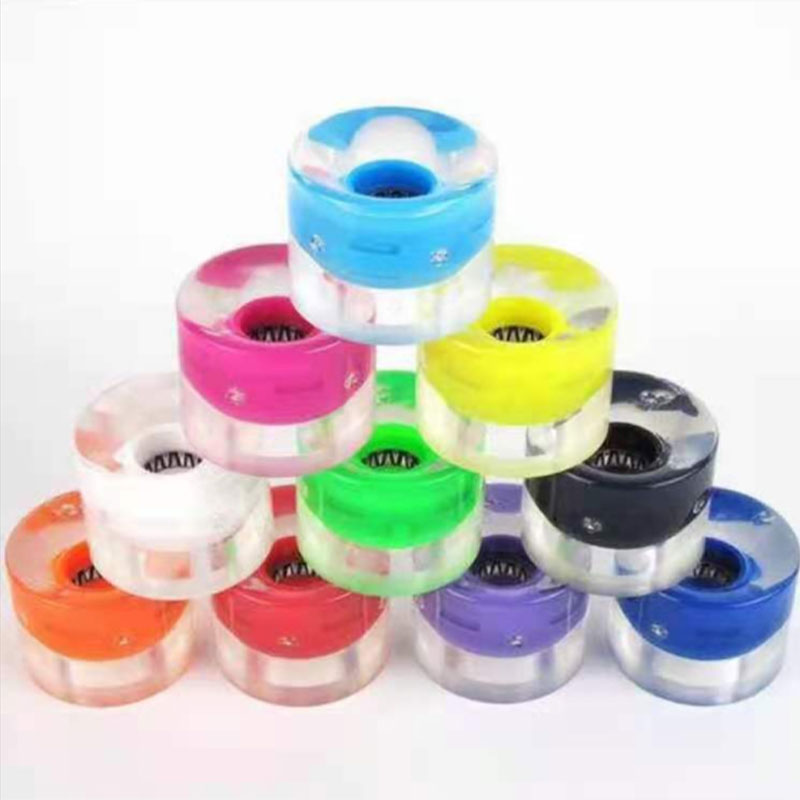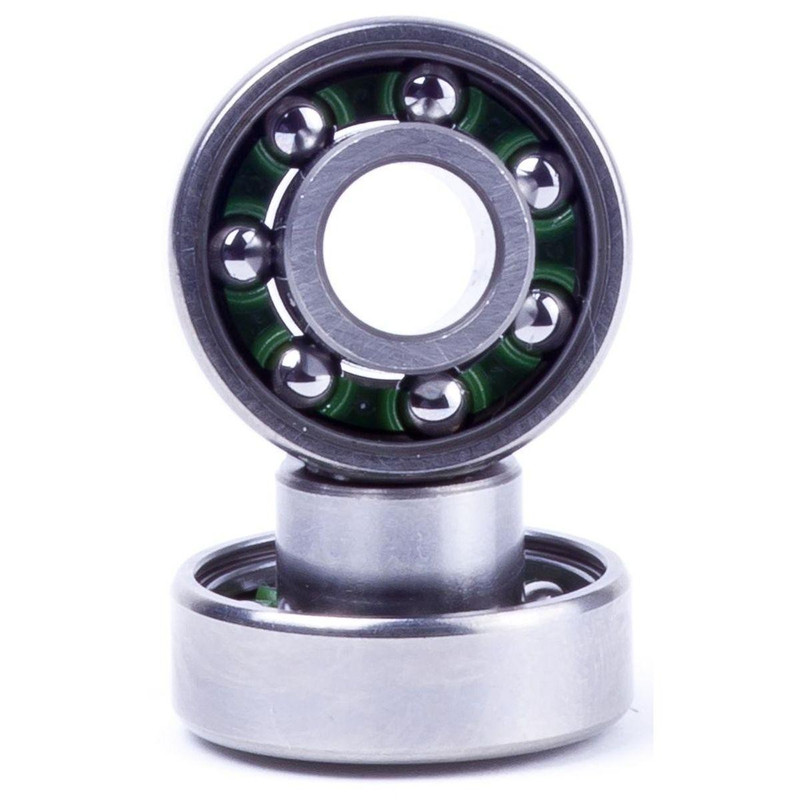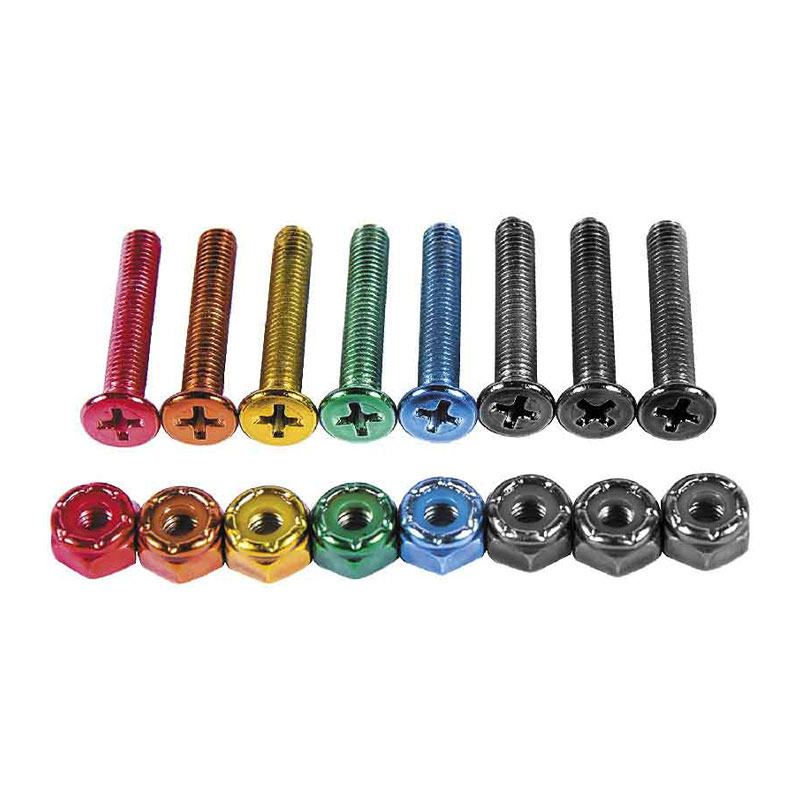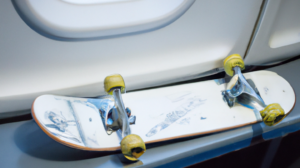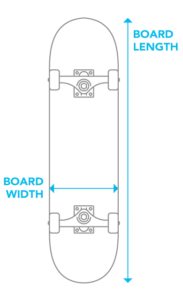Introduction
Skateboarding is not just a sport but a lifestyle that has captivated millions worldwide. Whether you are a seasoned skateboarder or a beginner, understanding the various parts of a skateboard is essential for enhancing your performance and maintaining your equipment. This guide delves into the intricate details of each skateboard component, providing you with all the knowledge you need to master your setup.
The Skateboard Deck
Material and Construction
The skateboard deck is the flatboard that you stand on. Typically made from multiple layers of laminated maple wood, decks are designed to be both flexible and robust. The number of plies, usually seven to nine, impacts the board’s durability and flex. Maple wood is favoured for its balance of weight and strength, but other materials like bamboo and fibreglass are also used for specific performance characteristics.
Shape and Size
Decks come in various shapes and sizes to suit different styles of skateboarding. Popsicle-shaped decks are famous for street skating due to their symmetrical shape and ability to perform tricks. Longboards and cruiser boards, on the other hand, feature different shapes aimed at enhancing stability and smoothness. The width of the deck is crucial; a typical skateboard deck ranges from 7.5 to 8.5 inches. More expansive decks provide more stability, while narrower decks are more accessible to flip and manoeuvre.
Graphics and Grip Tape
The underside of a skateboard deck often features graphics that express the rider’s style and personality. These graphics are applied using heat transfer or screen printing techniques. The top of the deck is covered with grip tape, a sandpaper-like material that provides traction between the skateboarder’s shoes and the deck, preventing slippage.
Trucks: The Backbone of a Skateboard
Components and Materials
Trucks are T-shaped metal components that mount onto the underside of the deck. Each truck consists of several parts: the baseplate, hanger, kingpin, and bushings. Aluminium is commonly used for the hanger and baseplate due to its lightweight and strength, while the kingpin is usually made of steel.
Size and Width
The size of the trucks should match the width of the deck. Trucks are measured by the hanger’s width and the truck’s total width. Matching the truck width to the deck width ensures stability and proper performance.
Bushings and Kingpin
Bushings are soft urethane rings that cushion the trucks, allowing them to pivot smoothly. The bushings’ hardness levels significantly affect the skateboard’s turning ability. The kingpin is the large bolt that secures the truck components and enables adjustments to the truck’s tightness, directly influencing how easily the skateboard turns.
Wheels: Speed and Grip
Material and Hardness
Skateboard wheels are made from polyurethane, a durable and grippy material. The hardness of the wheels, measured on the Durometer A Scale, significantly impacts the skateboard’s performance. Softer wheels (78A to 87A) offer better grip and a smoother ride, ideal for cruising and rough surfaces. Harder wheels (95A to 101A) are faster and more suitable for smooth surfaces and tricks.
Size and Diameter
Typically measured in millimetres, wheel size affects the skateboard’s speed and manoeuvrability. Smaller wheels (50-54mm) are preferred for street skating and technical tricks due to their lower weight and better control. Larger wheels (55-60mm) provide higher speeds and are better for vert skating and cruising.
Bearings: The Core of Wheel Performance
ABEC Ratings and Material
Bearings are small, circular devices that fit inside the wheels and allow them to spin. They are rated using the ABEC scale (Annular Bearing Engineers Committee), which measures their precision and tolerance. Higher ABEC ratings (5, 7, 9) indicate greater precision and smoother rolling. Bearings are typically made from steel, but ceramic bearings offer higher performance due to their reduced friction and heat resistance.
Maintenance and Lubrication
Proper maintenance of bearings is crucial for longevity and performance. Regular cleaning and lubrication with specialized bearing oil can prevent dirt buildup and reduce friction, ensuring a smooth ride. Bearing shields protect the internal components from debris and should be cleaned periodically.
Hardware and Risers
Bolts and Nuts
Hardware refers to the bolts and nuts that secure the trucks to the deck. Standard skateboard hardware sets typically include eight bolts and nuts, which come in various lengths to accommodate different setups. Allen key or Phillips head bolts are standard, and choosing high-quality hardware is essential for maintaining a secure connection.
Riser Pads and Shock Pads
Riser pads are plastic pads placed between the deck and the trucks to increase the distance between them. This helps prevent wheel bite, which occurs when the wheels touch the deck during sharp turns. Shock pads, made from rubber, serve a similar purpose but also help absorb impact, providing a smoother ride and reducing stress on the deck.
Grip Tape: Essential for Control
Application and Maintenance
Grip tape provides traction on the top of the deck. It is available in various grit levels, colours, and designs, allowing skateboarders to customize their boards. The proper application involves peeling the backing off and pressing the tape onto the deck, smoothing out air bubbles. Over time, grip tape can wear down and lose effectiveness, so replacing it periodically is necessary to maintain optimal control.
Conclusion
Understanding a skateboard’s various parts and functions is crucial for beginners and experienced skateboarders. Each component significantly affects the skateboard’s overall performance and safety. Skateboarders can ensure a smoother, more enjoyable ride by selecting the right parts and maintaining them properly.


